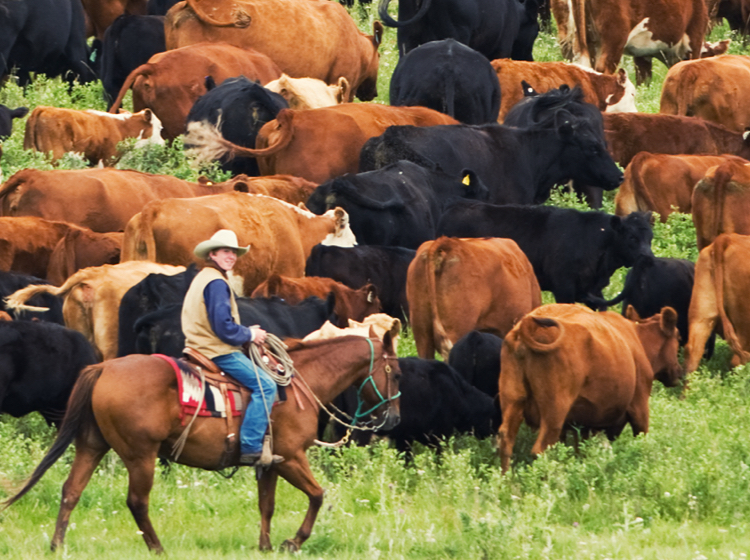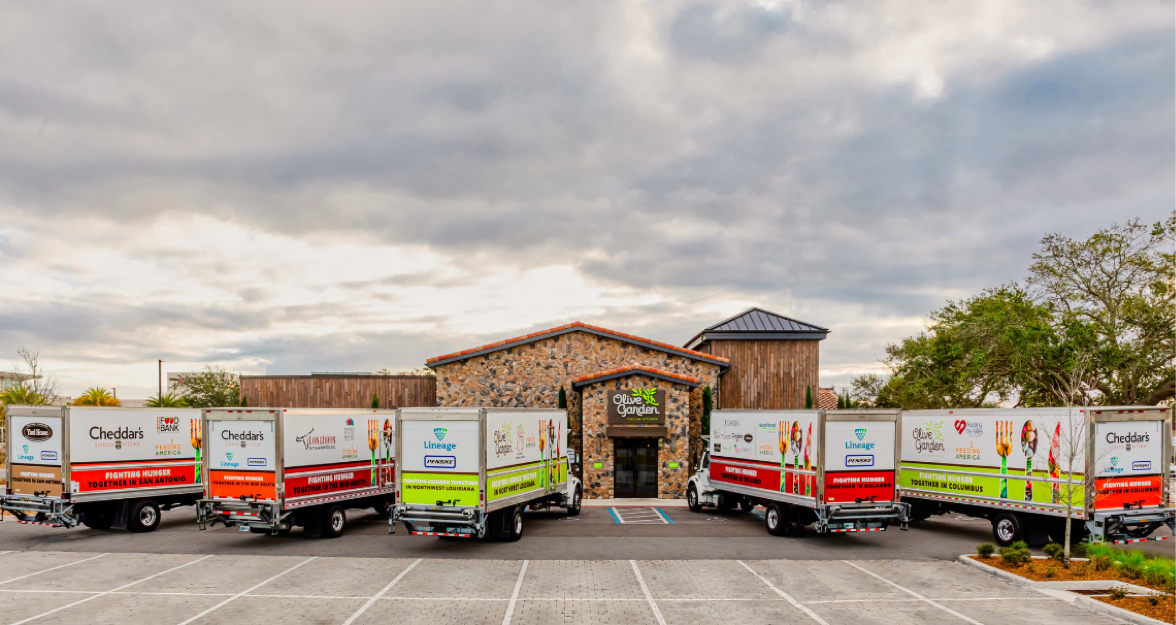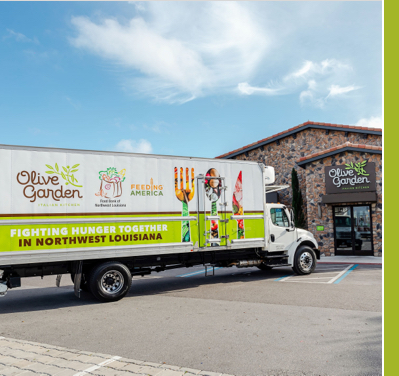Caring for Farm Animals
Caring for Farm Animals
We have a responsibility to ensure that animals are treated with respect and care in the process of providing nutritious food that is served in our restaurants. Our Animal Welfare Policy defines Darden’s position and outlines our approach and commitments to animal welfare.
Our Animal Welfare Policy
Darden takes animal welfare very seriously. A key tenet of our approach is to work with protein suppliers who are committed to the improvement of animal welfare. We expect our suppliers to share our commitment to the ‘Five Freedoms’ of care throughout the life of farm animals and to also provide a valid and verified animal welfare certification.
- Freedom from hunger and thirst
- Freedom from discomfort
- Freedom from pain, injury or disease
- Freedom to express normal behavior
- Freedom from fear and distress
Animal Welfare Council
In 2019, we established an Animal Welfare Council, which unites a cross-functional group of academics and thought leaders in the care of animals in food supply chains. This group is responsible for continued efforts to improve animal welfare outcomes and, most recently, mapped out a framework and process for working with chicken suppliers on key welfare areas, including medically important antibiotic usage.
Independent Advisors
Dr. Lily Edwards-Callaway
Assistant Professor of Animal Sciences
Colorado State University
Dr. Leonie Jacobs
Assistant Professor, Animal Welfare & Behavior
Virginia Tech
Dr. Janice Swanson
Professor Emeritus
Michigan State University
Consulting Advisors
Dr. Sara Crawford
Sustainable Environmental Consultants, Inc.
Mr. Øistein Thorsen
FAI Farms
Our Commitments to Animal Welfare
Improved Animal Welfare Outcomes: Our goal is that Darden’s suppliers will contribute to measurable improvements in animal welfare outcomes. Darden is working with our suppliers and industry peers, in conjunction with our Animal Welfare Advisory Council, to define and analyze these metrics.
Poultry: In partnership with our poultry suppliers, we are working to drive improvements in poultry processing that result in healthy biological function, expression of natural behavior and humane processing.
2025 Update: Thanks to the trust and transparency of our suppliers, Darden’s broiler chicken partners provided Key Welfare Indicator (KWI) data to support our assessment and benchmarking, conducted by leading welfare and sustainability experts across farms, during transport and at processing plants. In our first year, we saw encouraging supplier engagement around animal welfare practices, and while we continue to refine how we evaluate and standardize the data, this foundational work represents a strong start to our long-term commitment.
Pork: Darden continues to work to increase the amount of pork it purchases from suppliers that utilize group housing for pregnant sows, as defined by the American Association of Swine Veterinarians (AASV), that also meet our culinary specifications, high quality standards and accessible pricing requirements.
2025 Update: In fiscal 2025, approximately 56% of pork volume purchased by Darden was from suppliers with group housing for sows, based on a mass balance approach and input from our suppliers. For several of our pork products, Darden specifications require group housing.
Eggs: Darden's goal is source 100% cage-free egg products for our owned and operated restaurants. Our international franchisees are working to source only cage-free eggs by the end of 2027.
2025 Update: Darden’s supply chain partners were impacted by avian influenza, and some eggs purchased in fiscal 2025 were from traditional farms when cage-free supply was not available. Our international franchises are working to source only cage-free eggs by the end of 2027.
Antibiotics: Darden requires its land-based protein suppliers to comply with FDA guidelines and/or all applicable national regulations for antibiotics use. This means that antibiotics that are important in human medicine may not be used with farm animals for growth purposes, and those used by both humans and animals are only used to treat, prevent and control disease in farm animals under the supervision of a veterinarian. Darden supports best practices among farmers to address emerging threats from antimicrobial resistance.
Darden continues to assess industry best practices in addressing antibiotic stewardship and risks associated with antimicrobial resistance. We have found that well-managed farms and plants are key to enabling positive outcomes for animals.
In fiscal 2025, Darden surveyed all vertically integrated broiler chicken suppliers on the use of medically important antibiotics. Supplier responses indicated that all suppliers had policies in compliance with FDA guidelines and most were also aligned with WHO guidelines.



 “As a restaurant company, we are uniquely positioned to make a meaningful difference in the fight against hunger, and we are proud to partner with Feeding America to make a positive impact in communities where it is needed most,” said Gene Lee, Chairman and CEO of Darden. “Mobile food pantries are an important tool to help food banks meet the increased need caused by the pandemic. These vehicles will help Feeding America food banks in five different states directly distribute a large supply of foodin their communities for years to come.”
“As a restaurant company, we are uniquely positioned to make a meaningful difference in the fight against hunger, and we are proud to partner with Feeding America to make a positive impact in communities where it is needed most,” said Gene Lee, Chairman and CEO of Darden. “Mobile food pantries are an important tool to help food banks meet the increased need caused by the pandemic. These vehicles will help Feeding America food banks in five different states directly distribute a large supply of foodin their communities for years to come.”















